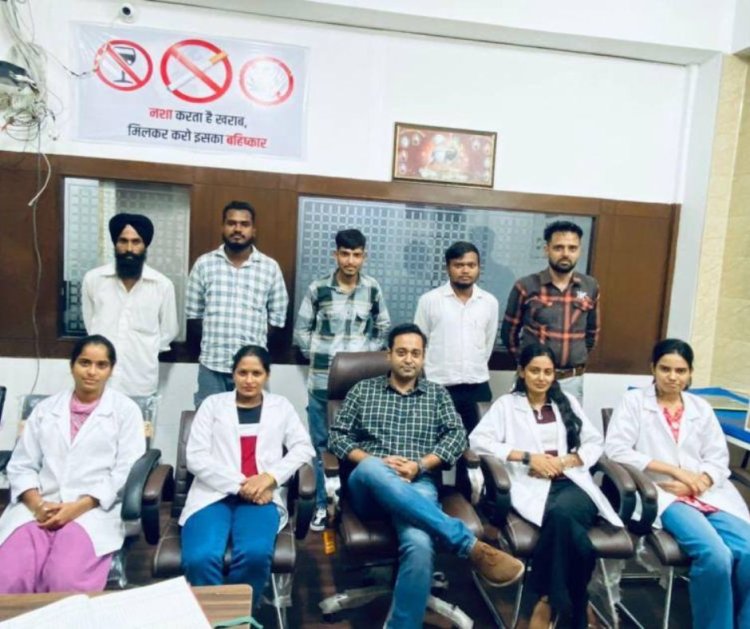What Types of Activities Are Done in the Rehab Center?
Discover the various activities in rehab centers, from physical therapy to emotional healing, social engagement, and holistic recovery programs.

Rehabilitation centers play a pivotal role in helping individuals recover from physical injuries, mental health challenges, or substance addiction. These facilities provide structured programs that focus on holistic healing through a variety of activities. From physical therapies to emotional support sessions, these activities are carefully designed to address the unique needs of each individual and aid them on their journey toward recovery.
Physical Therapy Activities
Exercise Programs for Strength and Mobility
One of the primary goals in a rehab center is to restore physical function. Exercise programs, customized to meet the needs of patients, help improve strength, flexibility, and mobility. Low-impact exercises such as yoga, swimming, or Pilates are often included to accommodate those with limited mobility. For individuals recovering from severe injuries, physical therapists design gradual progression plans to ensure safe and effective improvement.
Occupational Therapy
Occupational therapy focuses on helping patients regain the ability to perform daily tasks. This could include practicing skills such as dressing, cooking, or writing. Therapists may introduce assistive devices, such as grab bars or adaptive utensils, to support patients in achieving independence.
Mental and Emotional Well-being Activities
Counseling Sessions
Rehab centers often emphasize the importance of mental health. Counseling sessions, whether one-on-one or in groups, provide a safe space for individuals to share their feelings and learn coping mechanisms. Therapists use approaches like cognitive-behavioral therapy (CBT) to help patients reframe negative thoughts and build resilience.
Art and Music Therapy
Creative therapies, like art and music, offer patients an emotional outlet to process their experiences. Painting, sketching, or playing an instrument can reduce stress and encourage self-expression. These activities often reveal insights into the patient’s emotional state, helping therapists guide their recovery.
Meditation and Mindfulness Practices
Practices like guided meditation, deep breathing, and yoga are integral in teaching patients how to manage stress and anxiety. By focusing on the present moment, patients can improve emotional regulation and develop a greater sense of inner peace.
Social and Recreational Activities
Group Activities
Social connection is a cornerstone of recovery. Group activities such as team sports, board games, or storytelling sessions foster camaraderie among participants. These activities not only reduce isolation but also help patients rebuild confidence and communication skills.
Community Outings
Many rehab centers organize outings to parks, museums, or local attractions. These activities provide a refreshing break from routine and help patients practice social skills in real-world settings.
Educational and Life Skills Training
Vocational Training
For individuals seeking to re-enter the workforce, rehab centers offer vocational training. These programs teach job-specific skills, provide resume-writing assistance, and conduct mock interviews to prepare patients for employment opportunities.
Life Management Skills
Life skills training equips patients with practical abilities like cooking, budgeting, and time management. These essential skills are crucial for maintaining independence and building a stable lifestyle after leaving the rehab center.
Addiction Recovery Programs
12-Step Programs
Many rehab centers integrate 12-step programs into their activities, especially for addiction recovery. These programs encourage accountability, peer support, and spiritual growth as patients navigate their sobriety journey.
Relapse Prevention Education
Patients learn how to identify potential triggers and develop strategies to avoid relapse. This education empowers individuals to sustain their progress beyond the rehab environment.
Family and Relationship Counseling
Family Therapy Sessions
Family involvement is often a key component of recovery. In family therapy, loved ones can work together to address past conflicts and build healthier relationships. These sessions foster understanding and provide tools for better communication.
Reintegrating into the Family System
Rehabilitation programs also guide patients on how to reintegrate into their family systems. This includes setting boundaries, defining roles, and creating a supportive home environment.
Specialized Programs for Different Groups
Activities for Children and Teens
For younger patients, rehab centers offer age-appropriate activities like play therapy and group games. These programs help children process their emotions while building essential coping skills.
Programs for Seniors
Rehabilitation for older adults may include gentle exercises, cognitive stimulation, and therapies tailored to age-related challenges. These activities improve both physical and mental well-being.
Holistic and Alternative Therapies
Acupuncture and Massage
Alternative therapies like acupuncture and massage are widely used in rehab centers for their pain-relief and relaxation benefits. These therapies can complement traditional medical treatments.
Equine-Assisted Therapy
Working with animals, particularly horses, can help patients build trust, confidence, and emotional regulation. This therapy is especially beneficial for individuals with trauma or emotional struggles.
Goal Setting and Progress Tracking
Personalized Recovery Plans
Every patient receives a tailored recovery plan with specific, measurable goals. These plans are regularly reviewed with therapists to ensure progress and adjust as needed.
Celebrating Milestones
Rehab centers emphasize celebrating achievements, no matter how small. Recognizing progress motivates patients and fosters a sense of accomplishment, reinforcing their commitment to recovery.
Conclusion
Nasha Mukti Kendra in Patran play a vital role in helping individuals rebuild their lives. Through a combination of physical, emotional, and social activities, they provide a comprehensive approach to healing. The structured environment of a rehab center ensures that every patient receives the support they need to recover and thrive.
What's Your Reaction?
















